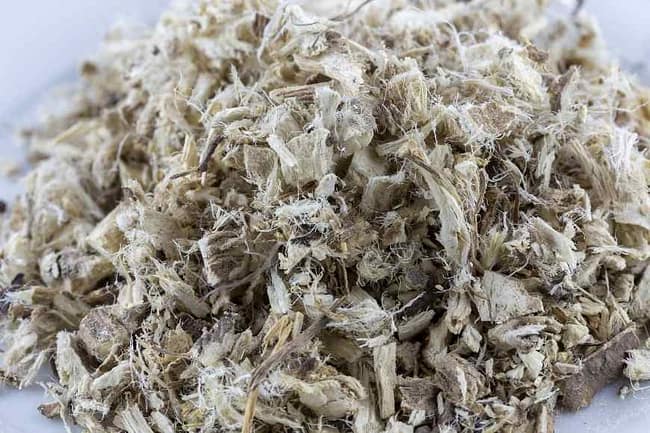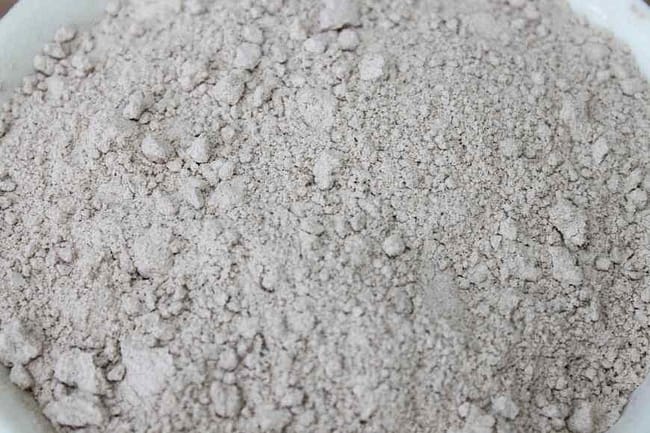When it comes to coughing, generally speaking, it's normal.
We all do it from time to time, so don't panic.
Fortunately, there are many home remedies available that can quickly relieve your cough.
Some of these remedies even contain only a few ingredients. Let's look at some of these home remedies and their benefits.
Overview
When it comes to using home remedies for a cough, there is no magic cure that will relieve your symptoms immediately.
However, most home remedies come with their own set of advantages.
Home remedies are side-effect free and safer when compared to over-the-counter cough medicines.
They can be given to children safely, but check with a doctor first.
These remedies should be tried only if you're experiencing mild symptoms of a cough, not severe ones like chest pain, excessive coughing, breathlessness, etc.
You should see a doctor if the problem persists over time and the symptoms worsen.
Also, consult your doctor before using home remedies, as some can interfere with your medications.
Finally, these remedies can aggravate the symptoms if you suffer from a cough due to allergies, asthma, bronchitis, and tuberculosis.
Benefits of Using Home Remedies for A Cough
There are several benefits associated with using home remedies for a cough. Take a look at some of them below:
- Home Remedies Are Free
As mentioned above, home remedies are free compared to prescribed medicines. In addition, most of the ingredients you probably have in your kitchen already. So they are not free but 100 times cheaper than over-the-counter (OTC) treatments. - Less Harmful Than OTC Medicines
Some OTC cough medicines contain chemicals that can affect your liver and cause long-term health concerns. Along with that, these medicines often contain paracetamol (a drug used for pain relief) or codeine, which might also harm your liver. Home remedies have fewer side effects and chances of causing any long-term damage compared to OTC medicines, so they're also safer for children. - Effective Relief From Cough
Since a cough can be painful, home remedies can provide quick and effective relief. In addition, these remedies can suppress your cough by bringing down inflammation of the airways. - Good For Kids
There are unique home remedies recipes that can also be used to take care of young children. As parents, you don't want to give your kids something that will make them sleep for long hours, so anything to keep them awake and active is the perfect remedy in this case. - Easy To Consume
Since home remedies can be prepared at home, they can be easily consumed, too. Moreover, you can store these remedies and share them with other relatives and family members.
10 Home Remedies For Coughing
Here is a short list of home remedies and recipes that will give you relief from coughing.
They don't contain too many ingredients and are easy to prepare.
#1 Honey
Honey is a kitchen staple and one of the most effective home remedies for a cough.

It contains antimicrobial properties and can soothe throat irritation and swelling.
It also has anti-inflammatory and antioxidant properties and can offer quick and effective relief from irritation in the throat.
They'll also help in getting rid of the mucus that is causing congestion in the respiratory tract.
- For this remedy, you will need two teaspoons of honey.
- You can warm it slightly to make it more effective and consume it before bed at night.
- Another way to take honey is to add it to your favorite tea, and don't forget to add the lemon for taste.
#2 Ginger Tea
Ginger tea is known for its anti-inflammatory effects; because of it, it can offer quick relief from coughing and other symptoms of colds and flu.

- For this remedy, you will need a tablespoon of grated ginger.
- Boil two cups of water, and then steep one tablespoon of grated ginger in the boiled water for 10 to 15 minutes.
- Strain the water and then sweeten it to your liking.
You can add a squeeze of lemon, too, for flavor.
You can take ginger tea every three to four hours to keep you fed and hydrated throughout the day.
If you are feeling brave, you can also eat raw ginger.
However, this is not for most, and I would suggest trying it in tea or another type of drink before eating it raw.
#3 Drink Lots of Fluids
Water is an essential drink to have when you're sick. It's crucial for health because it keeps your body hydrated and helps regulate your temperature.
Water also helps flush out toxins and makes it easier to breathe.
Additionally, water can ease headaches caused by dehydration.
You should have at least two liters of water every day.
Of course, you can always drink juice, tea, or soups if you don't like water. Avoid coffee and alcohol while you're sick, though.
Some warm or hot drinks can do the trick as well.

Here is a short list of just a few:
- Clear broths (Chicken Soup)
- Herbal teas
- Warm water with lemon
- Warm fruit juices
- Decaffeinated black tea
The main takeaway with fluids is to try different types to see what works for you and your taste buds.
Hydration is a big plus for your body, so you can find out what warms you up and makes you feel better.
#4 Salt Water Gargle
A saltwater gargle can provide quick relief from throat irritation and pain.
For this remedy, you will have to add three to four teaspoons of salt to a cup of water.
You can also add some thyme, sage, or rosemary.
Strain the mixture and then gargle it several times a day. The gargle will help loosen up mucus in the throat and ease the pain.
Make sure to rinse your mouth properly after gargling so that your saliva can also reduce irritation in the throat.
#5 Steam
Steam inhalation is another effective way to ease coughing, cold, and flu symptoms.

For this method, you will need a large bowl filled with water and a few drops of eucalyptus oil.
- First, put your face over the bowl and cover it tightly with a towel so the steam can penetrate your lungs.
- Next, inhale the steam, cover your head with a towel, and then exhale the steam from your mouth and throat.
Repeat this process until you feel relaxed.
After you're done, you can wipe your face with a towel and then rub a few drops of eucalyptus oil on your chest and back.
Another simple way to get some steam is to take a hot shower and breathe in the steam for the hot water.
#6 Marshmallow Root

Marshmallow root has soothing properties that can relieve sore throat pain, reduce chest and nose congestion, and keep your cough in check.
It's been used for hundreds of years in traditional medicine as a remedy for many conditions, including
- Bronchitis
- Allergies
- Inflammation of the mouth
- Digestive tract
- Skin ulcers
- Asthma
- Bronchitis
- Coughs, and colds.
It contains mucilage which can soothe irritated tissue in the respiratory system and remove mucus buildup in the lungs by moistening it and helping it slide out of the body easier.
Marshmallow root is available as a capsule or as a tea.
I have also seen it in the herb form and syrup.
So whether you want to drink tea or add syrup to your favorite drink, the choice is yours.
Side effects may include stomach upset, which may be alleviated by drinking more fluids.
Marshmallow root is in most health food stores and online.
Remember that Marshmallow root usually is safe to eat but is not recommended for children.
#7 Thyme
Thyme has antibacterial, antiviral, and antifungal properties that can knock out bacteria, viruses, and fungi that can cause illness.

This herb can treat respiratory problems and help strengthen the immune system to fight off infections.
Thyme can be used fresh in cooking or dried and then used as a tea or an herbal extract.
You can add this herb to vegetable or chicken soups, stews, or broths.
Thyme can also be used as an ingredient in homemade cough syrups.
It's an easy plant to grow in containers or pots, so you can use it whenever you have a cold.
One of the ways you want to use Thyme is to make a simple warm broth.
- You will need to add a generous amount of Thyme to a pot of hot water and simmer for about 10 minutes.
- Strain the broth and then drink it warm, and feel free to add more Thyme for more flavor if you like the taste.
You can also drink this thyme tea every three hours or whenever you need relief from congestion in the chest or throat.
#8 Slippery Elm
Slippery elm contains mucilage, a natural substance found in the inner bark of the slippery elm tree.
Native Americans used it to treat coughs and sore throats. It works by coating the throat and providing a soothing, lubricating effect that helps ease coughing and throat irritation.
Slippery elm is readily available as a powder, herb, lozenges, or tea form.

You can use this three times a day to relieve symptoms associated with the common cold.
#9 Turmeric
Turmeric has been used for centuries in traditional medicine as a beneficial spice for various conditions, including sore throats and mouth and digestive tract inflammation.
In addition, people used it as a remedy for coughs, colds, and other respiratory conditions.
Turmeric contains curcumin, an active compound that can help fight off infections and ease inflammation in the body.
It can also help boost the immune system and prevent the development of a cold virus.
Turmeric is available as a powder, an herbal extract, or a tablet.
To treat a cold or the flu, you can take a hot cup of turmeric tea, which combines two or three teaspoons of turmeric powder in hot water.
Let it steep for about 10 minutes, strain the mixture, and then turn it into a warm drink by adding a little milk.
Drink it throughout the day to ease coughing and ease your chest congestion.
#10 Change Your Diet (acid reflux)
Acid reflux can cause discomfort, lightheadedness, a sour taste in your mouth, and coughing.
In addition to eating smaller meals more often, it's a good idea to avoid a few foods and drinks that may worsen your acid reflux and heartburn, including :
- Alcohol
- Citrus fruits
- Coffee (decaf is acceptable)
- Chocolate
- Garlic
- Onions
- Red pepper
- Spices
- Tomatoes
- Tea
- Peppermint
- Chewing Gum
Watch out for foods and drinks with high-sulfur content, as these can aggravate your acid reflux symptoms.
Chocolate and onions, for example, are loaded with sulfur compounds that can further irritate the esophagus lining and cause heartburn.
To Sum it Up
When it comes to home remedies for a cough, each method offers different benefits; some may even be more effective than others when used on their own.
However, if done together, remedies such as a saltwater gargle, steam inhalation, and herbal supplements can work best to help relieve your cold symptoms and keep you healthy.
If your cough sticks around for longer than a week, consult your doctor, as this can be a sign of a more severe condition.
Please feel free to contact us or leave a comment for any other suggestions or recommendations.


